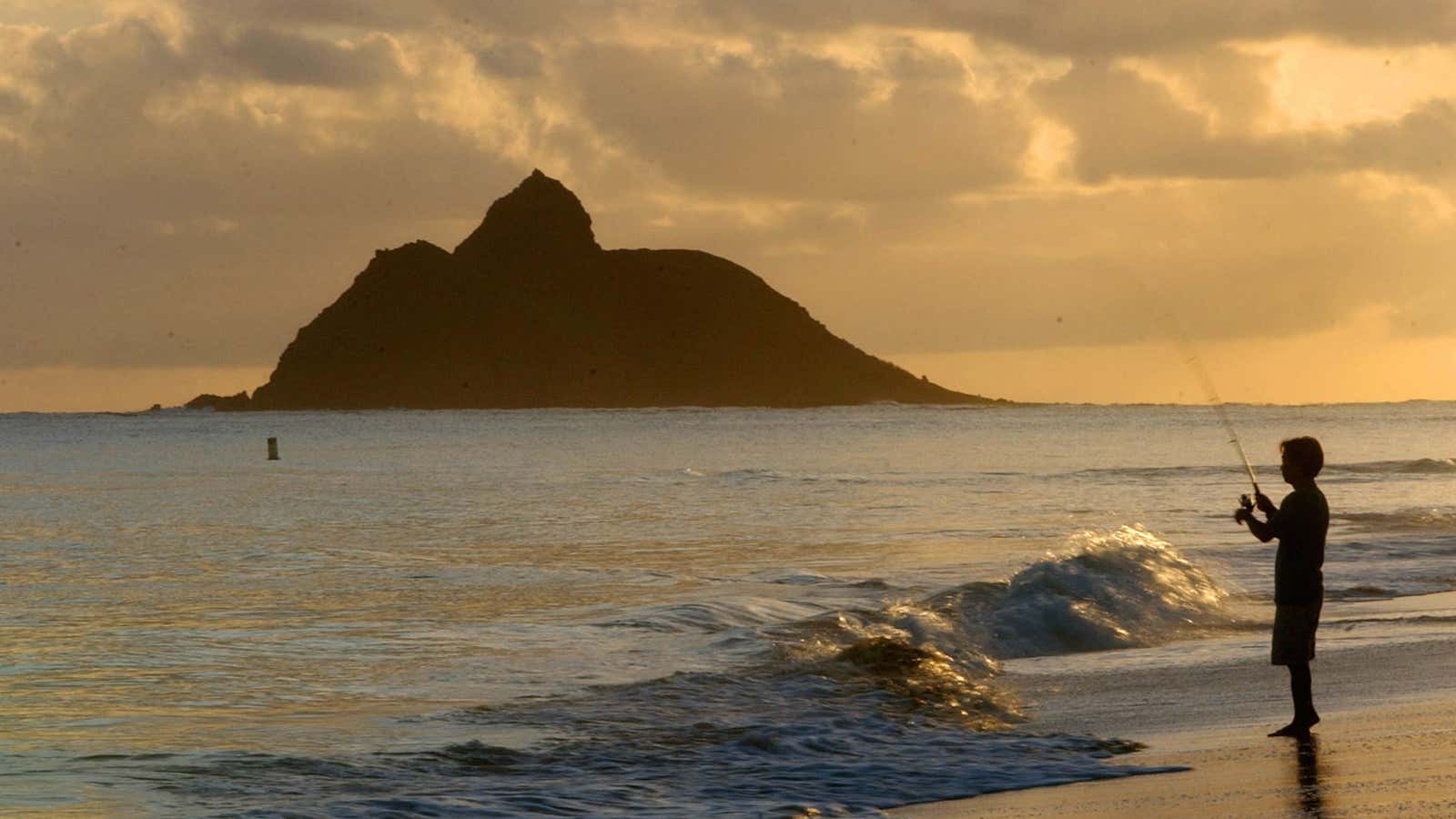Last month, a federal judge in Hawaii blocked the Trump administration from proceeding with its travel ban on people from certain Muslim-majority countries. US attorney general Jeff Sessions isn’t a big fan of that decision—or of Hawaii, apparently.
“I really am amazed that a judge sitting on an island in the Pacific can issue an order that stops the president of the United States from what appears to be clearly his statutory and constitutional power,” Sessions said on April 20 in an interview with conservative talk-radio host Mark Levin.
The comment drew quick criticism from the two US senators representing the state, both Democrats:
It also inspired the ire of Hawaii’s representatives in the House, with congresswoman Tulsi Gabbard calling on Sessions to resign:
The attorney general, for his part, has not backed down from his characterization. Ian Prior, a spokesperson for the Justice Department, responded rather tersely in an email to The New York Times: “Hawaii is, in fact, an island in the Pacific.”
Hawaii is, in fact, an archipelago comprising hundreds of islands over 1,500 square miles in the Pacific. More importantly, of course, it’s also a full state within the American union. As such, federal judges in Hawaii have as much right to evaluate executive orders as judges sitting in Pennsylvania or California or Texas.
Trump and his cabinet members may object to the constitutional system of checks and balances that federal judges help support, but there’s not much they can do about it. And Hawaii isn’t going to let the administration forget it.
Although Hawaii is the most recent state to join the union, it enjoys one of the country’s more vibrant histories of progressivism and inclusive politics. This ideological foundation makes sense if we look at Hawaii’s demographic foundation.
Although by no means a post-racial utopia, Hawaii sits at the historical epicenter of US racial diversity. Until California, Texas, and New Mexico very recently joined the club, it was the country’s only minority-majority state (meaning it had more non-white residents than white). It is also now home to the nation’s largest proportion of multiracial Americans—just shy of 25% of residents identified as multiracial in 2015, according to the Pew Research Center. (Alaska trails a distant second at 8%).
The state elects more federal legislators of minority backgrounds than most—including Hiram Fong, the first Asian American senator, and sitting junior senator Mazie Hirono, the first Asian-American woman elected to the Senate. Congresswoman Tulsi Gababrd is the first American Samoan and Hindu to hold congressional office.
Hawaii has also been a (relatively) friendly state for women in politics. Patsy Mink was the first non-white woman and first Asian-American woman elected to Congress in 1965. And it consistently ranks among the best states in the country for women overall. In 1970, Hawaii became the first state to legalize abortions for state residents, three years before Roe v. Wade legalized the procedure nationwide.
Women in Hawaii are “nearer to parity with their male counterparts in Hawaii than they are in other states,” when it comes to political and economic power, according to a report in the Washington Post. Hawaiian women make 83% of what Hawaiian men earn, which is just two percentage points away from Maryland, the state with the smallest pay gap. And according to the Gender Parity Index compiled by Representation 2020, a nonprofit focused on increasing female representation in US politics, Hawaii ranks seventh in the nation.
The state also maintains one of the most robust social-welfare programs in the country. Hawaiians enjoy some of the highest access to affordable, high-quality health care in the country, and subsequently, according to the US Centers for Disease Control’s National Vital Statistics Reports, they enjoy the longest life expectancy at birth.
Prior to the 2016 election, all signs pointed to a “Hawaiification” of America. Indeed, each year, the country becomes more racially heterogeneous. Women stake out greater and greater claims in the worlds of business and political leadership. More Americans support robust, universal health care than ever before.
In short, it should come as no surprise that Hawaii’s judicial and legislative officials are prepared to stand strong against any efforts by the Trump administration to curb this progress. It was a standard-bearer for progressive America before November 2016, and will continue to be so going forward. Jeff Sessions is right about one thing: It is amazing that a chain of islands in the Pacific can pose such a substantial hedge against the overuse of executive power.
